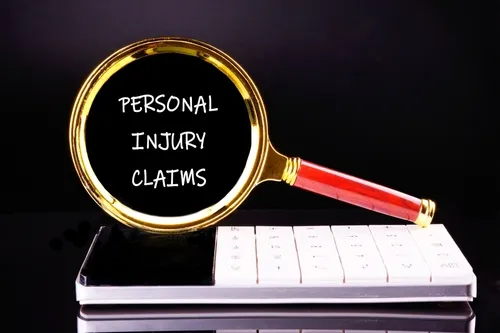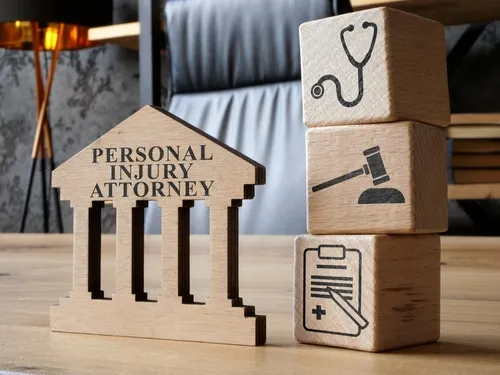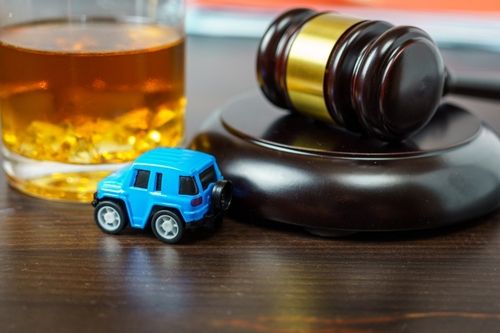- Personal Injury
Founder of Wade Law and expert trial attorney with experience in the courts and in the classroom, lecturing in several courses. Admitted to all of Georgia’s courts and the United States Supreme Court
If you’ve been injured in an accident in Georgia, one of the first questions that likely comes to mind is, “How much is my personal injury case worth?” Personal injury settlement amounts and lawsuit awards can vary widely.
Several aspects influence personal injury claim value, including the severity of your injuries, your medical bills, and your pain and suffering. At Wade Law, our Fayetteville personal injury lawyers help guide you through the process and fight for the maximum compensation.
Key Factors in Personal Injury Claim Value
When you are hurt because of someone else’s carelessness, it can turn your life upside down. At Wade Law, we know that understanding what affects your personal injury claim value is important for your recovery and peace of mind. Here’s what you need to know about the main factors that play a role in how much your claim may be worth in Georgia.
Medical Bills
Medical bills are usually the starting point for any personal injury settlement in Georgia. This includes all expenses related to your injury—hospital stays, surgeries, doctor visits, medication, physical therapy, and future medical care you might need. Keeping thorough records of every medical bill and doctor’s note is crucial. If you need ongoing treatment, this can increase the value of your claim because future medical costs are considered as well.
Lost Wages and Future Earning Capacity
If your injuries keep you from working, you can claim lost wages as part of your damages. This covers the income you missed while recovering. If your injuries are long-term or permanent and affect your ability to earn money in the future, you can also seek compensation for lost earning capacity. To prove this, you’ll need pay stubs, employer statements, and medical reports that show your work restrictions.
Property Damage
Property damage is important in car accident claims. This includes the cost to repair or replace your vehicle and any other property that was damaged. Make sure you keep repair estimates, receipts, and photos of the damage. The value of your property damage adds to your overall settlement amount.
Pain and Suffering
Not all losses are financial. Pain and suffering compensation covers the physical pain and emotional distress caused by your injury. In Georgia, this can include anxiety, depression, loss of enjoyment of life, and the impact on your relationships. Serious injuries and permanent disabilities generally lead to higher compensation for pain and suffering.
Comparative Negligence in Georgia
Georgia follows a modified comparative negligence rule. This means if you are partly at fault for the accident, your settlement will be reduced by your percentage of fault. For example, if you are 20% responsible and your damages total $100,000, you can recover $80,000. If you are 50% or more at fault, you cannot recover anything.
Insurance Policy Limits
Insurance policy limits determine the maximum amount an insurance company will pay for a claim. If your injuries or damages are greater than what the at-fault party’s insurance covers, you may need to use your underinsured motorist coverage or consider suing for the remaining amount.
Injury Severity
The more serious your injuries, the higher your claim value is likely to be. Catastrophic injuries, like traumatic brain injuries, spinal cord injuries, or severe fractures, often lead to larger settlements because they require extensive treatment and have lasting effects. Even soft tissue injuries can be significant if they cause chronic pain or disability.
Recovery Time and Long-Term Disability
How long it takes you to recover and whether you face permanent disability or ongoing medical needs will also influence your claim. If you need long-term care or will never fully recover, your lawyer will seek compensation for future medical costs and reduced quality of life. Medical expert opinions are often needed to prove these damages.
Types of Damages in a Georgia Personal Injury Case
The money awarded to victims in a personal injury case is called “damages.” Damages in a personal injury case fall into three main categories.
- Economic damages provide compensation for financial expenses and lost income.
- Non-economic damages compensate you for pain and suffering.
- Punitive damages are awarded only in cases of severe negligence.
Economic Damages
Economic damages are the direct financial losses caused by your injury. These are calculated using receipts, bills, and records.
Examples include:
- Medical bills: You can seek reimbursement for hospital stays, surgeries, doctor visits, rehabilitation, medication, and any future medical care you may need because of your injuries.
- Lost wages: If your injury caused you to miss work, you can claim the income you lost. This also includes loss of future earning capacity if your injuries prevent you from returning to your previous job or working at the same level.
- Property damage: You can seek compensation for car repair costs or the value of a totaled car. If your phone or other property was damaged in the accident, you can recover the cost to repair or replace those items.
- Out-of-pocket expenses: You can pursue compensation for transportation to medical appointments, hiring help at home, or buying medical equipment.
Careful documentation helps your Georgia personal injury attorney at Wade Law prove your financial losses.
Non-Economic Damages
These damages are just as important as economic losses, but they can be harder to measure. In Georgia, you may be able to recover for:
- Pain and suffering: This includes physical pain and emotional distress, such as anxiety or depression.
- Loss of consortium: If your relationship with your spouse or family is affected by your injuries, you may be able to claim damages for loss of companionship or support.
- Loss of enjoyment of life: If your injuries prevent you from enjoying hobbies, sports, or activities you once loved, this loss can be included in your claim.
A skilled Georgia personal injury lawyer can help present evidence, such as your testimony, medical records, and statements from loved ones, to support your claim for these losses.
Punitive Damages
In a Georgia personal injury case, punitive damages are intended to punish the defendant for especially reckless behavior or intentional wrongdoing. A typical example is drunk driving. These damages aim to prevent such harmful behavior in the future.
Normally, Georgia law limits punitive damages to $250,000 (Georgia Code § 51-12-5.1). However, this limit doesn’t apply in some cases, such as DUI accidents.
The Personal Injury Claims Process in Georgia
The personal injury claims process involves several steps. An attorney will advocate for your rights throughout the process.
- You should seek medical care right away, both for your health and to document your injuries.
- Next, you or your Georgia personal injury lawyer will notify the at-fault party’s insurance company of your intent to file a claim.
- The insurance company will open an investigation, which may include reviewing accident reports, medical records, and property damage estimates.
- A demand package is sent to the insurance company, starting the negotiation for a personal injury settlement in Georgia.
- If negotiations stall or the insurer refuses to offer a fair amount, your attorney may recommend filing a lawsuit.
How Insurance Adjusters Evaluate Personal Injury Claim Value
Insurance adjusters review all the details of your claim, including your medical bills, lost wages, property damage, and pain and suffering. They look at the accident report, your medical records, and any evidence you provide. Adjusters use formulas and guidelines set by the insurance company to estimate your claim’s value.
Common Tactics Used to Minimize Settlements
Insurance companies are businesses focused on minimizing payouts. Adjusters may downplay the severity of your injuries, question your medical treatment, or try to blame you for part of the accident. They might offer a quick settlement that is much lower than the true value of your claim. Sometimes, they delay the process.
A Personal Injury Lawyer Negotiates With Insurance Companies
A skilled Georgia personal injury lawyer from Wade Law understands the negotiation process and will push for a settlement that reflects your true losses, including pain and suffering and future medical needs. We handle communications with the insurance company so you can focus on your recovery.
An Attorney Can Represent You in Court
Most personal injury cases are resolved through a settlement. However, if the insurance company refuses to offer a fair settlement or disputes liability, your attorney may recommend filing a lawsuit. Wade Law is prepared to take cases to trial when necessary to protect your rights.
How Long Do You Have to File a Personal Injury Lawsuit in Georgia?
For most personal injury cases, you have two years from the date of the accident to file a lawsuit (Georgia Code § 9-3-33). If you miss this deadline, you may lose your right to recover any compensation, no matter how strong your case is.
There are some exceptions, such as cases involving minors or when the injury was not discovered right away, but these are rare. It is important to act quickly. Contacting a Georgia personal injury attorney as soon as possible helps ensure all paperwork is filed on time.
Frequently Asked Questions
What Is the Average Personal Injury Settlement in Georgia?
The average personal injury settlement in Georgia can vary widely depending on the type and severity of the injury, as well as the unique details of each case. Many settlements for minor injuries may be just a few thousand dollars, while moderate cases can reach tens or even hundreds of thousands. For serious or catastrophic injuries, settlements often climb into the millions.
How Are Pain and Suffering Damages Calculated?
Pain and suffering damages are not easy to measure. Insurance companies often use a multiplier method, which multiplies your economic damages by a number based on the severity of your injuries and recovery time. Factors like ongoing pain, emotional distress, and how your injuries affect your daily life are considered.
What if my damages exceed the at-fault driver’s insurance policy limits?
If your damages are higher than the insurance policy limits, you may be able to pursue additional compensation. This could involve filing a lawsuit against the at-fault party or seeking coverage under your underinsured motorist policy. A Georgia personal injury lawyer can help you explore all available options.
Contact Wade Law Today for a Free Consultation
One of the most common questions people ask our legal team is, “How much is my personal injury claim worth?” The value of your case depends on many factors, including the amount of your medical bills, the wages you have lost, the cost of property damage, and the pain and suffering you have experienced.
At Wade Law, we can evaluate the details of your case and explain your options. You do not have to face the insurance company or the legal process alone. Our Georgia personal injury attorneys have years of experience negotiating with insurers and presenting strong cases in court when necessary.
Contact us today by calling 770.282.1188 or completing our online form.










